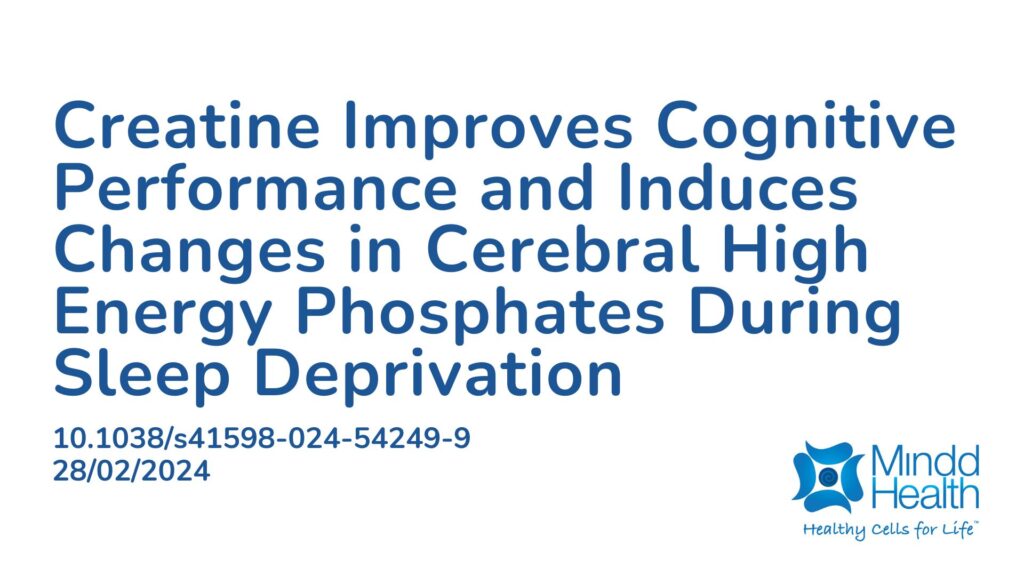Summary:
This study investigated whether a single high dose of creatine could reduce the negative metabolic and cognitive effects of sleep deprivation. Sleep loss is common in modern life and contributes to poor concentration and long-term health problems. Caffeine is often used to offset these effects, while creatine has gained attention in sports and clinical settings for improving physical and cognitive performance. Creatine’s entry into the brain is limited due to low solubility, delayed absorption, and restricted transport across the blood-brain barrier. Most creatine in the brain is produced internally by specific enzymes, which are not often found in the same cells. Because of this, oral supplementation typically takes time to affect brain metabolism. However, some studies suggest that with very high external levels or modified forms of creatine, short-term uptake may still occur. In this trial, participants were given a single high dose of creatine monohydrate (0.35 g/kg) or placebo during a 21-hour period of sleep deprivation. Brain metabolism was monitored at four time points using scans, alongside tests of cognitive performance. The results showed that a single large dose of creatine led to measurable changes in brain energy metabolites, helped maintain pH balance, and improved mental performance during sleep loss. These findings indicate that acute creatine supplementation may temporarily reduce the impact of sleep deprivation on brain function, even without prolonged intake.
Abstract:
The inverse effects of creatine supplementation and sleep deprivation on high energy phosphates, neural creatine, and cognitive performances suggest that creatine is a suitable candidate for reducing the negative effects of sleep deprivation. With this, the main obstacle is the limited exogenous uptake by the central nervous system (CNS), making creatine only effective over a long-term diet of weeks. Thus far, only repeated dosing of creatine over weeks has been studied, yielding detectable changes in CNS levels. Based on the hypothesis that a high extracellular creatine availability and increased intracellular energy consumption will temporarily increase the central creatine uptake, subjects were orally administered a high single dose of creatinemonohydrate (0.35 g/kg) while performing cognitive tests during sleep deprivation. Two consecutive 31P-MRS scans, 1H-MRS, and cognitive tests were performed each at evening baseline, 3, 5.5, and 7.5 h after single dose creatine (0.35 g/kg) or placebo during sub-total 21 h sleep deprivation (SD). Our results show that creatine induces changes in PCr/Pi, ATP, tCr/tNAA, prevents a drop in pH level, and improves cognitive performance and processing speed. These outcomes suggest that a high single dose of creatine can partially reverse metabolic alterations and fatigue-related cognitive deterioration.
Article Publication Date: 28/02/2024
DOI: 10.1038/s41598-024-54249-9



